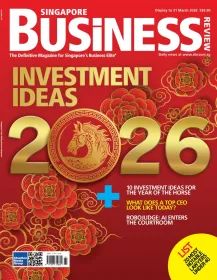Join the community
Thought Leadership Centre
Most Read
1. Singapore to slash CDC vouchers as Budget 2026 pivots to defence 2. Budget 2026 to surge tech funding as ageing workforce squeezes growth: analysts 3. OCBC and UOB to reverse year-long NIM slide in Q4 4. E-ang bao use jumps nearly 50% in 2025 as seniors ditch red packets: OCBC 5. HDB launches 9,012 flats in February BTO and SBF exerciseResource Center
Awards
Apr
14
Event News
Singapore Business Review Management Excellence Awards 2025 Winner: Moninder Jain of Logitech Singapore Pte Ltd
Moninder Jain of Logitech Singapore highlights how human and AI collaboration strengthened the company’s market position.


 Advertise
Advertise
















Commentary
Greening Asia’s supply chains
Greening Asia’s supply chains
A new realm of possibilities with AI in healthcare
The arm’s length standard must continue to underpin commodity transfer pricing
Singapore’s manufacturing industry sets sights on digital transformation
Raising GST for fiscal sustainability
Should Singapore firms revamp employees’ healthcare benefits after Covid-19?
Setting the foundation for success in the commercial real estate sector in Singapore
Holistic changes needed for the logistics industry to thrive
Open source is critical to the competitiveness of Singapore’s financial services industry
Going green in Singapore - what can businesses expect from the changes in carbon tax policy?
Global minimum tax and its potential impact on business planning for MNCs in Singapore
Looking ahead to the post COVID-19 supply chain ecosystem in Singapore
Enablers of a sustainable digital strategy
Why tech leaders are key to a productive post-pandemic workplace in Singapore
How Singapore FIs can address the tech and cyber security risks associated with public cloud adoption
The lure of Singapore – An attractive destination for single family offices
Embracing the Future of Customer Experience in 2022